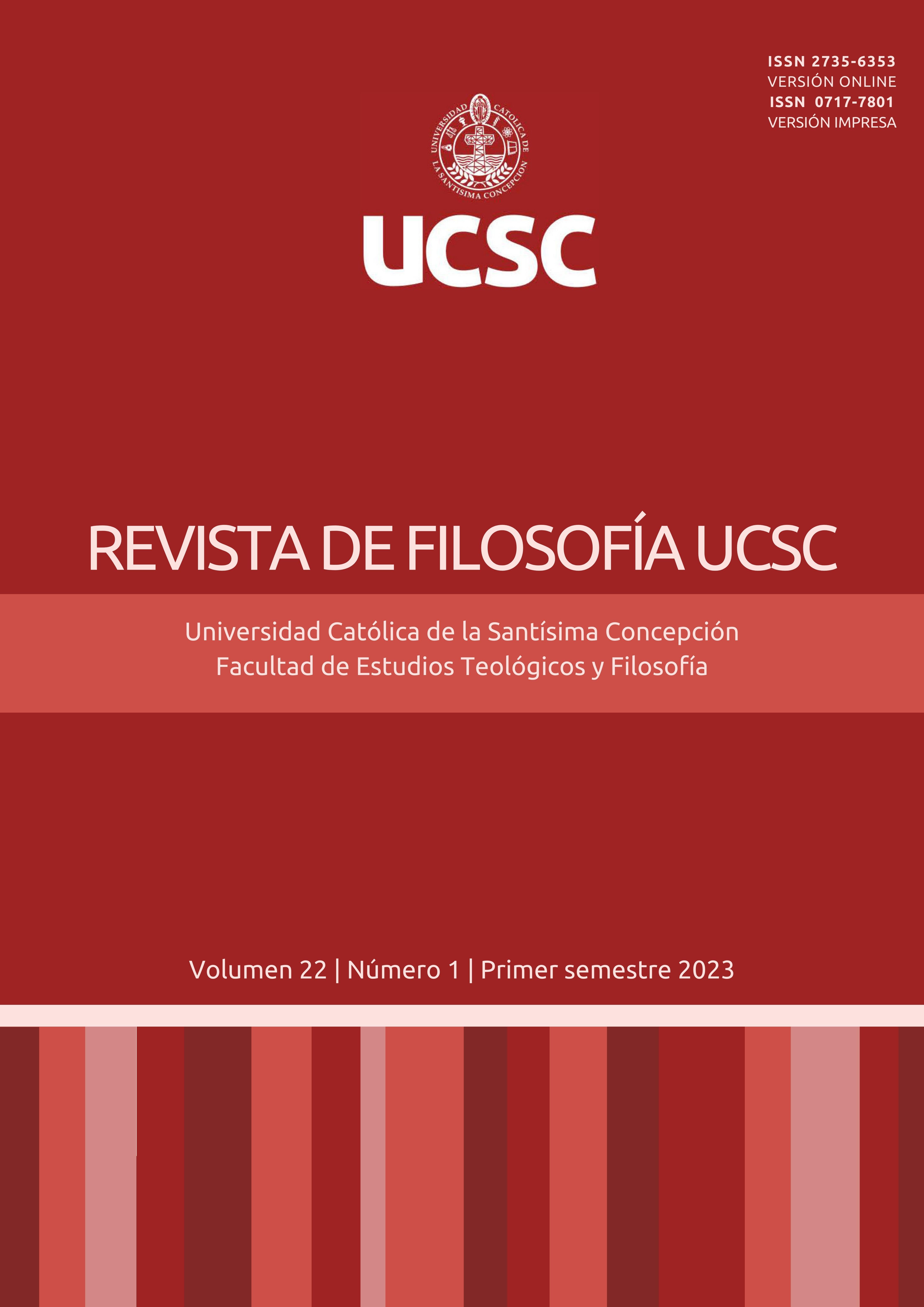Skepticism and practical reason in the philosophy of J. G. Fichte
Main Article Content
Abstract
The aim of this paper is to analyze J. G. Fichte's arguments in his refutation of the skepticism of E.G. Schulze and S. Maimon. My main hypothesis is that Fichte can provide a satisfactory rational criterion for refuting skepticism, to the extent that he adopts the perspective of a primacy of practical reason. The connection between the refutation of skepticism and the primacy of practical reason is much more evident in Fichte's early writings published during the Jena period (1794-1799). In a sense, skeptical doubt is based on a merely theoretical or contemplative attitude. However, Fichte's philosophy demonstrates that there exists in man an innate tendency to action and to the transformation of reality according to rational laws. The subject experiences reality through a feeling provoked by something that offers resistance to his practical tendency and therefore cannot maintain his skeptical attitude without contradiction.
Article Details
Section

This work is licensed under a Creative Commons Attribution-NonCommercial 4.0 International License.
The Revista de Filosofía UCSC is an open access journal and does not charge for publication. In addition, it regulates its Copyright and access policy according to the Creative Commons Attribution-NonCommercial 4.0 International Public License (CC BY-NC 4.0), therefore sharing (reproducing and distributing the material in any medium or format) and adaptation (modifying, transforming, and creating from the material) is allowed as long as proper credit is given and the citation is included with the corresponding data. Moreover, it is not allowed to use the material for commercial purposes.
How to Cite
References
Breazeale, D. (1981): “Fichte´s Aenesidemus Review and the Transformation of German Idealism”, The Review of Metaphysics, 34/3, pp. 545-568.
Breazeale, D. (1993): “Über die Unhaltbarkeit und die Unentbehrlichkeit del Skeptizismus bei Fichte”, Fichte-Studien, 5, pp. 7-19.
Colomer, E. (1995): El pensamiento alemán de Kant a Heidegger, Barcelona: Herder.
D’Alfonso, B. (2003): “Strategien zur Widerlung des Skepticismus in Fichtes Wissenschaftslehre 1804, Zweiter Vortrag”, Fichte-Studien, 20, pp. 167-179.
Duque, F. (1998): Historia de la Filosofía Moderna (La Era de la Crítica), Madrid: Akal.
Eidam, H. (1997): “Fichtes Anstoß. Anmerkungen zu einem Begriff der Wissenschaftslehre von 1794”, en Fichte-Studien, 10, pp. 191-208.
Fincham, R. (2000): “The impact of Aenesidemus upon Fichte and Schopenhauer”, Pli, 10, pp. 96-126.
Fincham, R. (2005): «Refuting Fichte with Common Sense: Friedrich Immanuel Niethammer’s Reception of the Wissenschaftslehre 1794/5», Journal of the History of Philosophy, 43/3, pp. 301-324.
Fichte, J. G. (1962): Gesamtausgabe der Bayerischen Akademie der Wissenschaften, herausgegeben von R. Lauth, H. Jacob, R. Schottky, Stuttgart/Bad Cannstatt: Frommann-Holzboog.
Fichte, J. G. (1975): Doctrina de la Ciencia, Buenos Aires: Aguilar.
Gabriel, M. (2006): “Saber y Conciencia Moral. Fichte o la Doble Verdad del Escepticismo, Ideas y Valores 132, pp. 75-99.
Hoyos, L. E (2001): El Escepticismo y la Filosofía Trascendental. Estudios sobre el Pensamiento Alemán a fines del Siglo XVIII, Bogotá: Universidad Nacional de Colombia/ Siglo del Hombre Editores.
Ivaldo, M. (2012): "Skeptizismus bei Fichte mit besonderer Berücksichtigung der Rolle des Zweifels in der Bestimmung des Menschen", Fichte-Studien, 39, pp. 19-36.
Kant, I. (1902): Kant’s gesammelte Schriften, herausgegeben von Königlich Preußischen Akademie der Wissenschaften, Berlin-Leipzig: Walter de Gruyter & Co.
Kuhlmann, W. (1985): Reflexive Letztbegründung Untersuchungen zur Transzendentalpragmatik, Freiburg/München: Verlag Karl Alber.}
Lohmann, P. (2004): Der Begriff des Gefühls in der Philosophie Johann Gottlieb Fichtes, Fichte-Studien. Supplementa 18, Amsterdam-New York: Rodopi.
Loock, R. (1997): “Gefühl und Realität. Fichtes Auseinandersetzung mit Jacobi in der "Grundlage der Wissenschaft des Praktischen", Fichte-Studien, 10, pp. 219-237.
López-Domínguez, V.: “Die Deduktion des Gefühls in der Grundlage der gesammten Wissenschaftslehre”, Fichte-Studien, 10 (1997), pp. 209-218.
Maimon, S. (1790): Versuch über die Transcendentalphilosophie, mit einem Anhang über die symbolische Erkenntinis, Berlin: Verlag Christian Friedrich Voß und Sohn.
Maimon, S. (1912): Versuch einer neuen Logik oder Theorie des Denkes. Nebst angehängten Briefen des Philaletes an Aenesidemus, Berlin: Verlag von Reuther & Reichard.
Reinhold, K. L. (1795): Versuch einer neuen Theorie des menschlichen Vorstellungsvermögen, Zweite Auslage, Prag und Jena: Verlag Widtmann & Mauke.
Rivera de Rosales, J. (1999): “Die Begrenzung. Vom Anstoß zur Aufforderung”, Fichte-Studien, 16, pp. 167-190.
Soller, A. K. (1997): “Fichtes Lehre Vom Anstoß, Nicht-Ich und Ding an sich in der GWL. Eine kritische Erörterung”, Fichte-Studien, 10, pp. 175-189.
Schulze, G. E. (1911): Aenesidemus oder über die Fundamente der von dem Herrn Professor Reinhold in Jena gelieferten Elementar-Philosophie, Berlin: Verlag von Reuther & Reichard.
Stahl, J. (2012): "Skeptizismus und Kritk - zur Wandlung der Kritikauffassung im transzendentalen Idealismus Fichtes", Fichte-Studien, 39, pp. 129-147.
Schäfer, R. (2012): "Kombinationen von Fundamentalismus, Kohärentismus und Skepsis bei Kant, Fichte und Hegel als Antworten auf Probleme gegenwärtiger Epistemologie", Fichte-Studien, 39, pp. 67-94.
Thomas-Fogiel, I. (2003): “Fichte et l’actuelle querelle des arguments transcendantaux”, Revue de Métaphysique et de Morale, 4, pp. 489-511.




